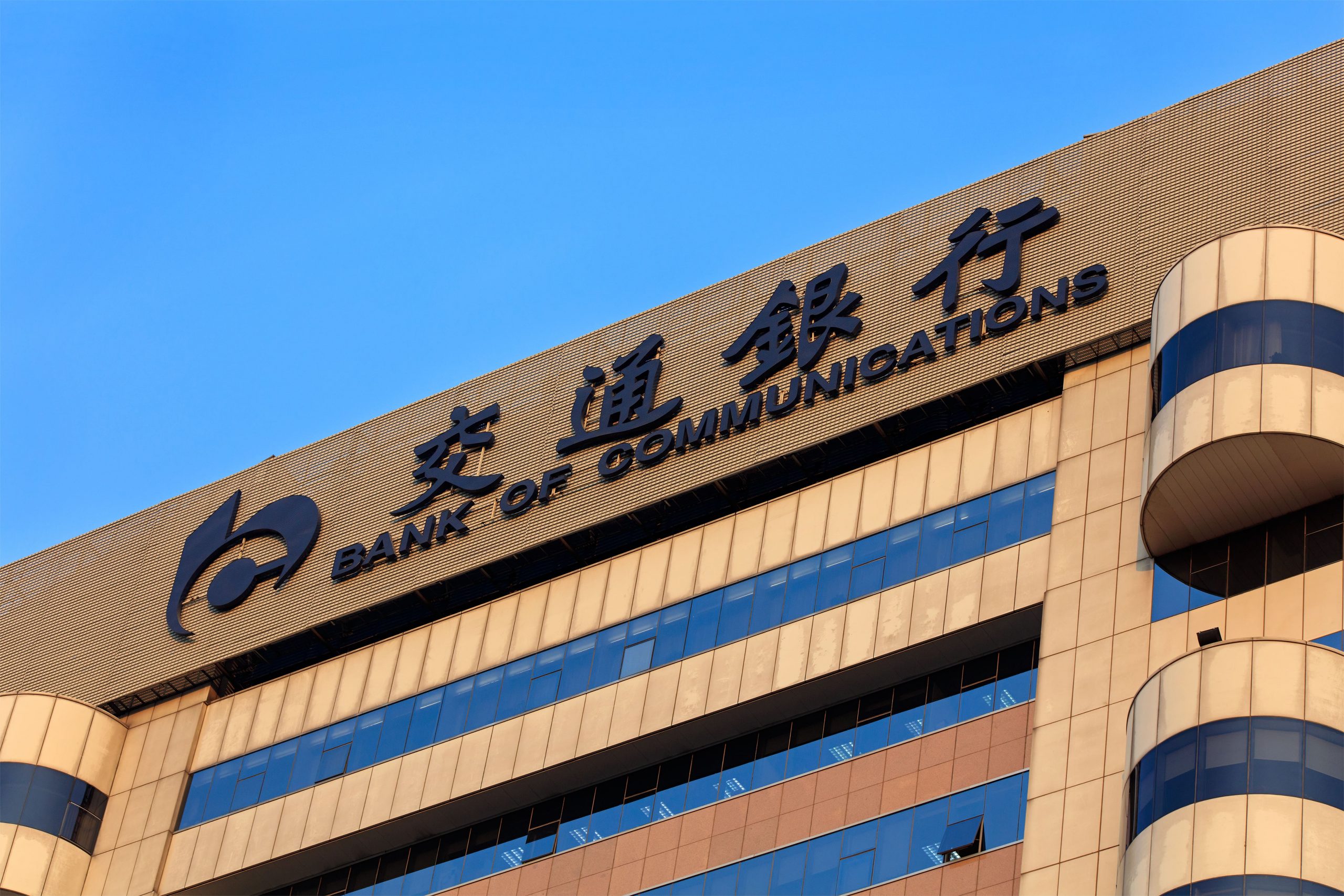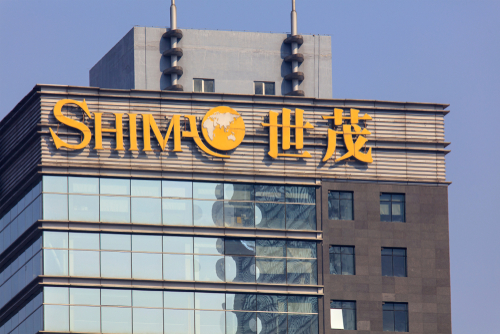This site uses cookies to provide you with a great user experience. By using BondbloX, you accept our use of cookies.
Bond Market News
Wuhan Trading, Shandong Hi-Speed Launch $ Bonds; Turkish President to Support Markets; BOCOM raises $2.8bn via AT1s; Fitch Rates UAE; Revlon Investors Brace For 11th Hour Rescue
November 12, 2020


S&P ended higher, up 0.8% while Nasdaq took a breather from the prior few days of sell-off as it rallied 2% with big tech stocks leading the way. The DAX and CAC rose 0.4-0.5% while the FTSE 100 outperformed, up 1.3%. US CPI for October and weekly jobless claims data are due today. The US treasury market was closed due to Veteran’s Day while Bund yields were at -0.5%. EU main and crossover CDS finished almost unchanged and 2.6bp wider respectively with Asia ex-Japan spreads tighter by 0.8bp. Asian equities are off to a mixed start this morning down ~0.2%.
Bond Traders’ Masterclass
End the year by knowing the Theory and the Practical aspects of the Bond Market. BondEvalue is conducting a special Bond Traders’ Masterclass across five sessions specially curated for private bond investors and wealth managers to develop a strong fundamental understanding of bonds. The sessions will be conducted by debt capital market bankers with over 40 years of collective experience at premier global banks. Click on the image below to register.
Avail an additional 10% discount on the Masterclass package by registering before 13 Nov 2020
New Bond Issues
- Inner Mongolia Yili Industrial $ 5Y at T+160bp area
- Wuhan Trading Group $ 3Y at 3.05% area
- Shandong Hi-Speed $ 3Y at T+240bp area
- X’ian Qujiang Cultural Industry $ 3Y at 5.7% area
- Huaxin Cement $ 5Y at T+220bp area
- Singapore Post $ 10Y at 2.8% area
- Dubai Islamic Bank $ PerpNC6Y AT1 Sukuk at 5.25% area

Zhenro Properties raised $200mn via a 363-day green note at a yield of 5.95%, 42.5bp inside initial guidance of 6.375% area. The bonds received orders over $2.2bn, 11x issue size. Proceeds will be used for debt refinancing.
China Aoyuan Group raised $230mn via a 4.75Y non-call 2.75Y (4.75NC2.75) at a yield of 6%, 37.5bp inside initial guidance of 6.375% area. The bonds were rated BB and received orders over $2.1bn, ~9x issue size. Proceeds will be used for offshore debt refinancing.
Guangzhou R&F Properties raised $360mn via a 2Y bond at a yield of 12.375%, 50bp inside initial guidance of 12.875% area. The bonds are rated B+ rating from Fitch, and received orders over $1.2bn, ~3.3x issue size. Proceeds will be used for debt refinancing.
Halcyon Agri raised $200mn via a Perp non-call 5Y (PerpNC5) at a yield of 3.8%, 30bp inside initial guidance of 4.1% area. The bonds, rated Baa2, received orders over $500mn, 2.5x issue size. The bonds are guaranteed by Sinochem International and Sinochem International (Overseas), a wholly owned subsidiary of Sinochem International, holds a 54.99% stake in Halcyon Agri. Chinese state-owned Sinochem Group owns a 55.76% stake in Sinochem International. Moody’s said it considers the proposed securities to be 100% debt-like because there is a 300bp step-up if the notes are not called.
Nanjing Yangzi State-Owned Assets Investment Group raised $200mn via a 364-day note at a yield of 2.35%, 45bp inside initial guidance of 2.8% area. The bonds, rated A- by Fitch and received orders over $1.7bn, 8.5x issue size. Nanjing Yangzi will provide a keepwell and liquidity support deed, as well as a deed of equity interest purchase undertaking.
CSN Inova, the Brazilian steel company raised $300mn via a tap of its 6.75% 2028s at a yield of 6.45%, 15bp inside initial guidance of 6.6% area. The bonds have expected ratings of B2, with a stable outlook with proceeds going towards refinancing debt and covering general corporate purposes.
New Bonds Pipeline
- Central Nippon Expressway $ green bond
- CALG $70mn 5.9% 5Y privately placed bonds
- IRFC up to $1bn
Rating Changes
Moody’s downgrades Heathrow Finance’s ratings to Ba2/B1 from Ba1/Ba3; outlook remains negative
Fitch Downgrades Norwegian’s 2016-1 Class B Certificates; Maintains Class A on RWN
Moody’s affirms Deutsche Bank Mexico’s ratings, outlook changed to stable
Fitch Revises SABIC’s Outlook to Negative; Affirms at ‘A’
Moody’s assigns Baa1 rating to Shandong Hi-speed’s proposed USD bond supported by keepwell agreement
Fitch Rates the United Arab Emirates at ‘AA-‘; Outlook Stable
Fitch Rates Guangzhou R&F’s Proposed USD Notes ‘B+’
Fitch Rates Encore’s 2026 Senior Secured Notes ‘BB+(EXP)’
Turkish President’s Comments Reinforce Support To Markets
Turkish President Erdogan lent his support behind the newly central bank governor and finance minister. The last governor and finance minister left office as the governor was sacked and the finance minister had resigned due to health reasons. He noted “we will not hesitate to apply the right prescriptions even if it is painful…we will see gains made by domestic and foreign investors who trust in Turkey’s economy and lira as our own gains…the way to strengthen our reserves is to increase confidence in the lira”.
While some optimism has kicked in, market participants require more evidence of the same – “I’m not buying it but I would love to be proven wrong. We have heard statements like this countless times in the past but when push comes to shove Erdogan still calls the shots… The market requires, nay demands, a conventional rate hike of at least 400-500 basis points at next week’s MPC”, said a trader at Investec Bank. An analyst at Medley Global Advisors said, “An apparent U-turn from the president or at least a public admission that rates will need to rise, hence the reference to a ‘bitter-pill’. Can a leopard change its spots? There is certainly some skepticism”.
The Lira gained as much as 4% on the news after falling ~30% YTD in hope of new confidence in the policy. Turkish government bonds also rallied 2.5 points with the 10Y benchmark at 99.5, yielding 12.5% (yields lower 50bp). Turkish dollar bonds were also higher with the 5.75% 2024s up 1.6 to 102.3.

For the full story, click here
Bank of Communications raises $2.8bn via AT1s
Bank of Communications/BOCOM (A2/A-/A) raised $2.8bn via a Perp non-call 5Y (PerpNC5) AT1 bond at a yield of 3.8%, T+334.5bp, inside initial guidance of 4.15% area. The bonds which have expected ratings of BB+ by Fitch received orders over $4bn, ~1.4x issue size. Proceeds will be used to replenish the Additional Tier 1 capital of the issuer. Fitch notes that the non-performance risk is mitigated due to their expectation for sovereign support and BOCOM’s undistributed profits of CNY176bn ($26bn) end-1H2020.
Distributions or coupons are payable annually and the bonds have a coupon reset if not called after 5 years – the bonds’ coupons will be reset to the US 5Y Treasury benchmark rate plus the initial spread (T+334.5bp) on the fifth year and every five years thereafter with the first reset date on November 18 2025. BOCOM may redeem all or some of the bonds on the first reset date or any distribution payment date thereafter at its discretion. The bonds also have a dividend stopper. The bonds have a non-viability trigger event which includes:
- CBIRC (the regulator) having determined that without a write-off, the issuer would become non-viable
- Any relevant authority having determined that without a public sector injection of capital or other equivalent support, the issuer would become non-viable
If a non-viability trigger event occurs, BOCOM has the right to irrevocably write-off (partly or fully) the outstanding principal of the bonds and this portion will not be restored or become payable. Any accrued but unpaid distribution of the written-off portion will also not be payable.
The bonds rank junior to the claims of depositors, general creditors, holders of Tier 2 Capital and holders of any other subordinated indebtedness that rank senior to the bonds. The bonds rank senior to equity capital and pari passu (on an equal footing) with the claims of holders of any other AT1 instruments that rank pari passu with the Bonds. BOCOM International, Crédit Agricole, HSBC, Goldman Sachs (Asia), Citigroup, China International Capital Corporation, ANZ and BNP Paribas were the Joint Book Runners and Joint Lead Managers. BOCOM’s dollar 3.725% Perps were up 0.04 to 100.58, yielding 3.06% in secondary markets.
Fitch Rates United Arab Emirates at AA- with a Stable Outlook
Fitch ratings has rated the federal government of United Arab Emirates (UAE) at AA- with a Stable Outlook. The investment grade rating puts the sovereign in league with countries like Qatar and Hong Kong. The rating is however one notch lower than that of its Abu Dhabi Emirate (AA) and is based on UAE’s “moderate consolidated public debt level, strong net external asset position and high GDP per capita” as per Fitch. The rating action considers the support from the richest emirate, Abu Dhabi as a positive while taking note that there is no explicit guarantee by Abu Dhabi. The negatives for the country include its weak governance relative to its peers and its high dependence on revenues from oil and debt levels of some of its Emirates and their government-related entities (GREs). According to the rating agency, UAE is likely to have a budget deficit of 3.8% of GDP against a surplus of a similar amount last year. Even though the country does not owe any debt currently, it is likely to issue debt soon following the footsteps of other Gulf states including Oman. The rating agency forecasts the UAE government debt at 34% of GDP in 2020, below the ‘AA’ category median of 39% and expects this to rise to ~45% of GDP by 2022. The highest debt is held by the Emirate of Dubai at ~80% of Dubai’s GDP in 2020. However, the rating agency estimates that the federal government has limited exposure to individual emirates’ direct or contingent liabilities. The sovereign is rated Aa2 by Moody’s and is not rated by S&P. Out of the seven emirates of UAE, three are rated. Abu Dhabi is rated Aa2/AA/AA, Ras al Khaimah is rated Baa1/A-/A and Sharjah is rated BBB-/Baa2/NR. The table below shows some of the countries rated AA-/Aa3 by at least one rating agency sorted by region.

For the full story, click here
Revlon Investors Brace For a Eleventh Hour Rescue
Revlon announced yesterday that ~$236.5mn of its 5.75% senior notes due 2021 amounting to ~69% of bonds had been tendered in preliminary results for an exchange offer as reported by Reuters. The company will determine by November 13 to ascertain if all conditions precedent to completion of the exchange offer have been fulfilled. The cosmetics company had been working with a financial adviser to prepare for a potential bankruptcy filing in the event that bondholders don’t take the company up on a restructuring offer, according to sources.
Revlon, which has been struggling even before the pandemic with changing preferences and dynamics in the industry, tapped Alvarez & Marsal to prepare the company for a possible bankruptcy if enough bondholders did not participate in a restructuring. Last month, the company planned to buy back $344.79mn of its 5.75% 2021’s at a steep discount of $325 in cash or a mix of cash and debt for every $1000 in notes submitted. However, it struggled to persuade bondholders to take part in the deal after receiving just 11% of the bonds in October. Bloomberg reported that just over 33% had been exchanged last week with Revlon needing ~80% participation with the company working to find and persuade remaining bondholders. Failure to complete the deal could trigger demands for immediate repayment of Revlon’s other senior debts beginning November according to the company.
Revlon has debt of ~$2.94bn across loans and bonds and $344mn in cash. The company needs to make a deal by November 16 to avoid triggering the repayment of more than $1bn of secured debt. Revlon’s battered stock soared ~80% in the last two days with confidence of a deal coming through. Revlon’s 5.75% bonds due 2021 jumped 16 cents to 53.4 cents on the dollar.
For the full story, click here
Softbank Incurs Massive Trading Losses of $3.7 Billion
Softbank’s secretive unit ‘SB Northstar’ which had been setup to trade blue chip technology stocks, has revealed for the first time that it has incurred trading losses of a whopping $3.7bn. The news about Softbank’s unusual venture broke earlier this year when it was reported by multiple news outlets that a “NASDAQ Whale” was purchasing billions of dollars worth of call options on blue chip US tech names. Softbank had formally acknowledged the existence of the asset management unit in August and said that it was planning to invest ~$10bn in these public technology companies in order to diversify their portfolio traditionally invested in private technology companies. However, by the end of September, positions ballooned well beyond that as the venture put complex derivative positions on the book including short call options, which bet on decline of stock prices. As losses mounted with the relentless rise in stock prices, the unit took out a margin loan of $6bn by pledging shares of Alibaba. While Mr. Son has sought to downplay risks involved in short term trading via complex derivatives – insisting that it represents only a small portion of the firm’s total equity holdings, analysts remain concerned on the volatility of returns induced by the unit’s activities. Softbank currently sits on a $50bn cash pile following liquidation of their stakes in T-Mobile and Alibaba.
Bond markets have largely shrugged off these disclosures so far with Softbank 6% Perps up 3.9% year to date.
For the full story, click here
Term of the Day
Silver Bonds
These are special bonds issued by Hong Kong’s government particularly for senior citizens aged 65 and above. Interest on the bonds will be paid once every six months at a rate linked to inflation in Hong Kong, subject to a minimum rate of 3.5%. The interest is 50bp higher than an earlier tranche sold last year, and more generous than the 2% iBond launched last month as per SCMP. The purpose of offering the bonds is to offer retail investors facing low global interest rates, a safe place to park their investments, which is a problem for Hong Kong’s 1.3mn elderly population according to SCMP.
The bonds will be issued on December 22 worth HK$10bn. Hong Kong residents, who turn 65 on or before March 2021 with a valid Hong Kong identity card can subscribe through one of the 20 placing banks or the 20 designated brokers. The target issuance size of the fifth batch of Silver Bonds will be increased from HK$3bn in the past to HK$10bn. This can further be increased to a maximum of HK$15bn depending on the market response.
Talking Heads
“Our country has the financial strength this year and next to do everything that is necessary to keep control of the pandemic and to cushion the related economic consequences,” Scholz said. “The economy has quickly recovered, the economic slump is at least limited, and things are going much better than expected,” he said.
“In the period ahead, we will be more focused on earning trust and credibility in our economic policies, and we will bring down the country’s risk premium,” he said “We will make things easier for foreign and local investors and provide them with support by viewing their gain as our gain.” “Don’t forget: interest is the cause, inflation is the result,” he said. “We will overcome this.”
“We are building a growth structure which creates qualified employment, which does not cause inflation and a current account deficit,” he said. “We will not refrain from implementing the correct recipe, even if it’s bitter.”
“The purpose is to encourage investors to hold onto the bond and gain a reliable and stable interest return,” Yuen said. “With the global economy struggling under the pandemic, many central banks have issued lots of liquidity,” Yuen said. “Elderly residents now see greater investment risks and lower returns, making it hard to plan for retirement.”
“I hope we lose money on this next hedge,” Mr. Ackman said. “We’re in a treacherous time generally and what’s fascinating is the same bet we put on eight months ago is available on the same terms as if there had never been a fire and on the probability that the world is going to be fine.”
“We want the programme structured so the debt is declared (by the IMF) as sustainable with a high probability,” said Grassi. “If we have to say, ‘no, this programme to us doesn’t work,’ then that is something that we will say,” he said, adding creditors were prepared to write to the IMF too if needed.
“That risk has now materialised, and bondholders must now accept a significant debt write-down,” she said. “It is simply immoral for bondholders to demand full repayment and to make huge profits on Zambia’s debt while the country struggles with COVID-19, a major economic crisis and spiralling poverty levels,” Clifton said.
“The direction that Oman took recently … is a step in the right direction,” said Azour.
“But I think there’s also room on the expenditure side to streamline and to reorganise the priorities in order to be ready to support the economic recovery, address some of the current issues that Oman is facing.” “Also Oman has to address the level of debt that is very important too,” Azour said.
Top Gainers & Losers – 12-Nov-20*

Other Stories
Go back to Latest bond Market News
Related Posts:









